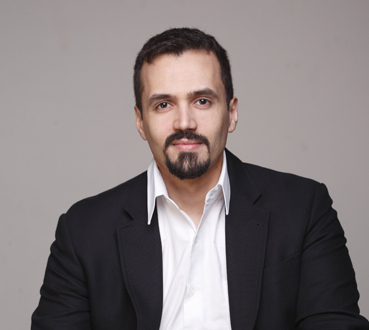As the World Youth Forum (WYF) nears ending, there were continuing op-eds supporting President Abdel Fattah Al-Sisi, congratulating organisers and responding to critics.
Khaled Miry, editor-in-chief of the state-owned daily Al-Akhbar, wrote Wednesday in a front page column that the forum depicted great people standing behind their leader to face terrorism and build their country.
“The president responded to the lies and defamation by some in the West on human rights, asserting that Egypt supports all human rights and the people want to live but terrorism doesn’t that to happen,” Miry wrote.
In the same context, former Al-Ahram chairman Morsi Attallah denounced “irrational talk and decadence of inciting channels” broadcasting from Doha, London and Istanbul which in his opinion reduced the forum to being just an overpriced event and highlighting the absence of youth “convicted in terrorism crimes.”
In the same page, Makram Mohamed Ahmed who heads the Supreme Media Council, wrote a piece titled “A great opening of the Sharm El-Sheikh forum” in which he said he was proud of its success in bringing together different cultures and human stories.
Among the scenes in Sharm El-Sheikh which caught media attention was the account by a Yazidi woman victim of the atrocities of the Islamic State group, who “made Egypt cry,” as described by Al-Ahram writer Ahmed Abdel Tawab.
“Would that professor of Islamic Fiqh who once justified the rape of the women of infidels to humiliate the enemies see the consequences of her call which backfired when a lawyer said raping Egyptian women who wear ripped jeans is a national duty – without excluding the Muslims!” Attallah wrote.
It is likely that Attallah’s reference was to a controversial statement made last year by Soad Saleh, an Egyptian fiqh professor at Al-Azhar University.
On a different note, Hossam Eissa, International Law professor and former minister and wrote a full-page commentary in Al-Masry Al-Youm’s Wednesday issue reviewing a book published this year by political journalist Abdullah Al-Sinawi about Mohamed Hassanein Heikal. Eissa praised Al-Sinawi’s homage to his tutor whom he honours himself in the piece as a proud
In the meantime, “They hate sculpturing, love slaughtering” was the headline of writer Khaled Montasser’s column Wednesday in the private Al-Watan newspaper. This follow controversy which erupted after he posted on Facebook an image of Lorenzo Bernini’s sculpture “The Rape of Prosperpina”.
Islamic preacher Khaled El-Gendy led a campaign against Montasser accusing him of inciting to debauchery. Lawyer Samir Sabry, well-known for his multiple lawsuits in the name of morality, filed a report against him to the prosecutor-general.
As so, Montasser tackled the collisional relation between art and religion in three articles this week, from a historical perspective all the way up to extremist approaches.
On the other hand, several writers and politicians also expressed solidarity with Montasser in op-eds over the week including politician Emad Gad.
Last but not least and as the month of November comes a the first annual reminder of the Black Thursday – the Egyptian pound flotation – Safwat Qabel, professor of economy and former dean of the Faculty of Commerce in Sadat University wrote in the private Al-Shrouk daily about “what happened to Egyptians” a year on.
He argued that the number of poor people increased, that the most harmed categories were employees and pensioners, that in facing price hikes citizens had to go for unhealthy diets and that they have even saved doctors fees among other effects which are shaping the behaviour of the people.



